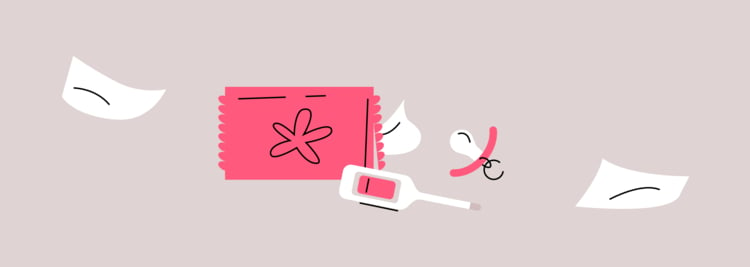As a new mom, you’re probably sleep-deprived and fighting off one illness after another. You might be concerned about breastfeeding while sick, and rightly so. Read on for helpful FAQs and handy tips to keep your infant happy and healthy even when you’re not feeling 100%.
-
Tracking cycle
-
Getting pregnant
-
Pregnancy
-
Help Center
-
Flo for Partners
-
Anonymous Mode
-
Flo app reviews
-
Flo Premium New
-
Secret Chats New
-
Symptom Checker New
-
Your cycle
-
Health 360°
-
Getting pregnant
-
Pregnancy
-
Being a mom
-
LGBTQ+
-
Quizzes
-
Ovulation calculator
-
hCG calculator
-
Pregnancy test calculator
-
Menstrual cycle calculator
-
Period calculator
-
Implantation calculator
-
Pregnancy weeks to months calculator
-
Pregnancy due date calculator
-
IVF and FET due date calculator
-
Due date calculator by ultrasound
-
Medical Affairs
-
Science & Research
-
Pass It On Project New
-
Privacy Portal
-
Press Center
-
Flo Accuracy
-
Careers
-
Contact Us
Breastfeeding While Sick FAQs: What You Should Know


Every piece of content at Flo Health adheres to the highest editorial standards for language, style, and medical accuracy. To learn what we do to deliver the best health and lifestyle insights to you, check out our content review principles.
Should I be breastfeeding while sick?
Generally speaking, yes. Fortunately, breast milk does not transmit microorganisms that cause serious or long-term diseases. In fact, it actually protects your child from various illnesses, such as diarrhea and pneumonia. Breast milk contains antibodies that ensure their safety, even if you’re feeling sick while breastfeeding.
Can a baby get sick from mom while breastfeeding?
A mild case of the cold or flu might have you asking, “can my baby get sick from mom while breastfeeding?”
Well, believe it or not, it’s a good idea to continue nursing despite the way you’re currently feeling. The above-mentioned antibodies should prevent your baby from catching whatever it is you have. As long as it’s nothing severe, rest assured that you can proceed as usual should you be sick while breastfeeding.
Additionally, maintaining your breastfeeding routine means you’re able to grab a few moments throughout the day to sit back and relax. This could improve your mood, allow you to rest, and speed up recovery. If you’re not up for mealtime, though, consider pumping your milk and letting someone else take care of the feeding.
Tips for breastfeeding while sick
Although your breast milk won’t make your little one sick, you do need to avoid passing your germs to them in other ways. Always wash your hands, especially before you hold your child. Try your best not to cough or sneeze near them. If they do end up catching your illness, continue to breastfeed to provide them with all the nutrients they need to recover quickly.
In the meantime, give yourself some much needed TLC. Get plenty of sleep each night and drink lots of fluids. If you become dehydrated, breast milk production may decrease.
Can you take medications while breastfeeding?
It depends. If you see your doctor, remind them that you’re breastfeeding so they can adjust prescriptions accordingly. Also, note that certain over-the-counter drugs can make their way into your breast milk or even affect your supply. Results vary greatly, with some medications showing up in harmlessly low concentrations and others posing a much bigger threat.
If you’re a mom who is sick while breastfeeding, be sure to evaluate every drug on a case-by-case basis. Conduct thorough research and always check with your doctor before starting anything new. When necessary, they can either recommend alternative medications or ask you to stop breastfeeding temporarily.
Should you know in advance that you need to take a breastfeeding break, you can prepare yourself. Purchase a double electric breast pump and stash away all the milk your body is able to produce.
Note that certain over-the-counter drugs can make their way into your breast milk or even affect your supply.
However, if you’ve already started new medication but didn’t get a green light from your doctor yet, it’s best to be cautious. Pump your milk, clearly label it, and store it in a separate area. Don’t feed it to your child until your doctor confirms it’s safe.
Lastly, if you have a chronic condition like high blood pressure, it’s important to stay on these prescriptions to maintain your own health. In this case, ask your doctor prior to breastfeeding whether it’s right for you and your child.
Can you breastfeed a sick baby?
Take a quiz
Find out what you can do with our Health Assistant

The World Health Organization heavily encourages breastfeeding, as evidence shows breastfed babies are less likely to develop illnesses later in life. Infants who weren’t breastfed have a greater chance of catching:
- Bacterial infections (e.g., E. coli, salmonella)
- Viral infections (e.g., influenza, rotavirus)
- Parasites
So, what if the roles are reversed, and your baby is the one who’s sick? Again, breast milk is extremely beneficial as it contains the essential nutrients they need to regain their strength. Its antibodies potentially reduce recovery time, too. And when your little one is ailing, nothing is more comforting than mommy’s warm embrace.
Remember to offer them plenty of fluids, especially if they’re having diarrhea or vomiting, which tends to dehydrate them. Continue to breastfeed on your regular schedule or perhaps increase the amount and frequency. If they’re not well enough to breastfeed directly, try using a bottle, eyedropper, or syringe.
There’s no need to supplement breast milk with juice or water since it already contains vitamins, minerals, and fluids. Formula is also unnecessary and, in fact, is harder for them to digest.
Feeding a congested baby
If your infant has a stuffy nose, breastfeeding may be challenging. Here are a few tips to help them breathe easier at mealtime:
- Suck out any mucus from your child’s nose with a bulb syringe aspirator.
- Use saline nose drops.
- Sit with them near a humidifier or in a steamy room to clear their nasal passages.
- Breastfeed in an upright position.
If your baby continues to have difficulty breathing, consult your pediatrician.
Does being sick affect your milk supply?
Having a cold or any other type of virus won’t directly impact your milk supply. However, if your illness is also causing diarrhea, vomiting, fatigue, or decreased appetite, you’ll probably notice reduced milk production. Your body doesn’t have enough fluids and nutrients to make the normal amount of breast milk. Get plenty of rest and drink lots of fluids to try and restore these levels.
How to boost milk production after being sick
Though your overall health and breast milk supply won’t immediately bounce back, there are steps you can take to fast-track recovery.
Relax
Stress and anxiety inevitably inhibit production. Try to stay calm as much as possible, pump in a quiet room, and massage your breasts. Occasionally take a moment or two for yourself to unwind.
Pump frequently
Pumping more often encourages your body to up milk production. Aim to pump for roughly 15 minutes every couple of hours. Whenever possible, pump both breasts simultaneously for maximum results.
Breastfeed on demand
The more you breastfeed your baby directly, the more you’ll be able to pump. Try to arrange your schedule so you can feed your baby several times a day.
Limit formula use
Inversely, the more formula your infant drinks, the less demand there is for your breast milk, and the less your body will produce. If possible, try to rely on formula as little as possible.
Drink lots of fluids
Your body requires a lot of fluids to create breast milk. Drink plenty of water and juice while avoiding caffeinated beverages. Caffeine actually dehydrates your body and may interfere with your child’s sleep schedule.
Talk to your doctor about how to quit smoking
Smoking reduces your milk supply and alters the taste of your breast milk.
Practice self-care
In addition to nurturing your baby, you also need to care for yourself. Try to eat a healthy, well-balanced diet and exercise as much as possible. Minimize stress and try to sleep whenever your child sleeps.
Takeaway
There’s absolutely no need to feel guilty about being sick while breastfeeding. Research shows that breastfeeding while sick has almost no adverse effects on your little one. Just remember to check with your doctor about medications you’re considering and give yourself the same love and attention you give your baby.


Hey, I'm Anique
I started using Flo app to track my period and ovulation because we wanted to have a baby.


The Flo app helped me learn about my body and spot ovulation signs during our conception journey.


I vividly
remember the day
that we switched
Flo into
Pregnancy Mode — it was
such a special
moment.
Real stories, real results
Learn how the Flo app became an amazing cheerleader for us on our conception journey.




